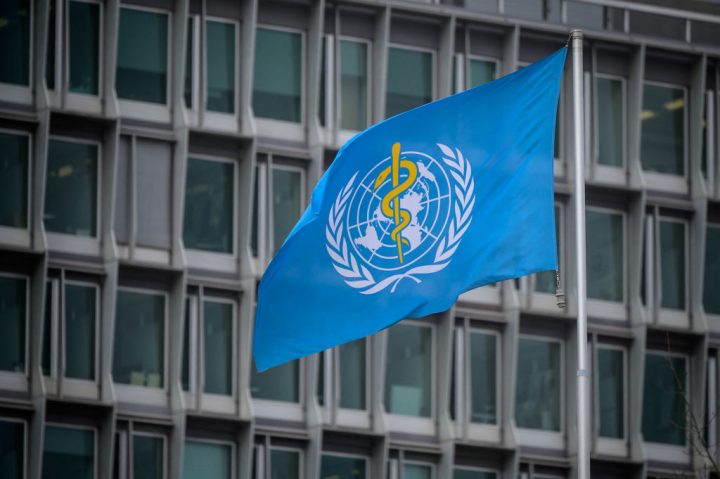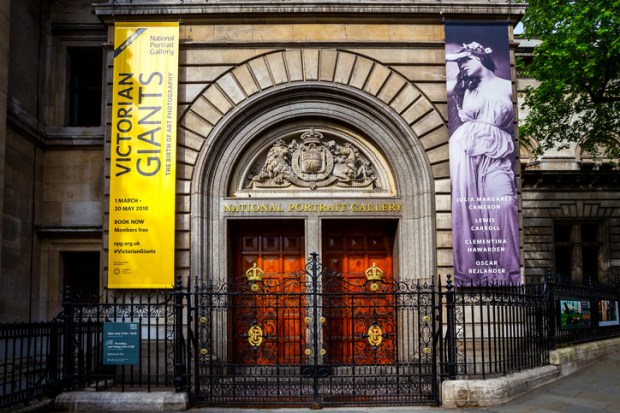The fall-out from Covid continues. Its latest manifestations on the international stage are a draft pandemic preparedness treaty, soon to be formally published and opened for signature by the WHO, and an upcoming vote on proposals to amend the organisation’s International Health Regulations 2005 (IHR). The latter is a set of internationally binding rules for dealing with, among other things, pandemics.
Neither text makes for gripping reading; both might look innocuous and almost uncontroversial. In fact, however, as a group of Tory MPs and peers from the all-party parliamentary group on pandemic response and recovery pointed out this week, they could carry considerable dangers for Britain’s sovereignty, freedom and democracy.
It is actually hard to see any good reason for signing anything whatsoever that comes from the WHO
Of the two, the proposed IHR amendments are the more drastic. Apart from widening the WHO’s discretion to declare a public health emergency, they include a reference to measures to be taken to ‘counter misinformation’. More radically, there is also a proposed new article that would unequivocally require all states to ‘recognise WHO as the guidance and coordinating authority of international public health response during public health emergency of international concern and undertake to follow WHO’s recommendations in their international public health response’.
Potentially, this could give the WHO the power, at least as a matter of international law, to require measures such as lockdowns, and to dictate the distribution of medicines and the like. Even if this was strongly opposed by both voters nor and their representatives.
The proposed pandemic preparedness treaty is, to be frank, mainly hot air. It boasts plenty of references to such things as human rights, equity, solidarity, and an ‘integrated, unifying approach that aims to sustainably balance and optimise the health of people, animals and ecosystem’. But this too has the potential to constrain governmental freedom of action. It would require them, for example to take into account WHO recommendations in the development of national policies, the assurance of ‘equitable’ access to medicines and vaccines, both domestically and globally, and the consideration of such things such as no-fault compensation schemes for when things go wrong.
Just how far the requirements of these documents go is admittedly unclear, as is often the case with international agreements. They nevertheless remain highly problematic. Depending on their interpretation by a highly politicised WHO, their very presence as instruments agreed by Britain could have the potential to afford opportunities for mischief by countries looking for a stick to beat the UK with. They could constrain our own government’s freedom to act (or, importantly, not to act) in important ways when faced with a new pandemic.
Despite these hazards, the government is at present still in the thick of the UN negotiations on their final wording, and pretty clearly wants to sign whatever comes out. True, Andrew Stephenson, minister of state in the Department of Health, promised formulaically in a Commons debate just before Christmas to preserve ‘red lines’ as regards handing over sovereignty to the WHO or anyone else. But one wonders how much this means in practice.
Here, however, is a radical suggestion. Why not politely withdraw from the entire negotiations? Standing back, it is actually hard to see any good reason – aside, perhaps, from an obsession about the UK being seen to be doing its bit – for signing anything whatsoever that comes from the WHO.
We don’t need a treaty commitment, or formal acceptance of technical changes to the IHR, to let us play our part as a good global citizen when the next pandemic arrives. All we need is a dignified announcement that in that event we will co-operate with other states and the WHO to do whatever we see as necessary. If this was forthcoming, would other states care about the lack of a formal signature from London? It seems highly unlikely.
The advantages for the UK and its citizens from such a move would be considerable. The lack of any treaty commitment would neatly neutralise the prospect of lawfare by lockdown fanatics and others seeking to overturn democratically accountable ministers’ decisions. They wouldn’t be able to argue that they had paid insufficient attention to the UK’s international commitments.
It would also have a salutary political effect. For example, the reference in the IHR to countering misinformation and disinformation could easily be used by a future authoritarian government as an excuse to introduce large-scale restrictions on social media or the internet as a whole. You can easily see a minister piously telling MPs not to argue because the UK could not be seen to be acting ‘contrary to international law’. It could also be used as a reason to pre-empt opposition to seriously restrictive lockdown measures with weasel words such as that ‘the UK’s international agreements, and our commitment to the international rule of law, mean our hands are tied’. Were we not to sign, both these pleas would be effectively stymied, to everyone’s benefit.
Will the government be persuaded to avoid leaving these hostages to fortune out of a misplaced desire not to seem standoffish in the corridors of the WHO? It’s too early to say, and it’s certainly a disappointment that no-one from the Labour side of the parliamentary group saw fit to join the call for it to think again. But let’s hope this document from the intelligent side of the Tory party concentrates a few minds before it’s too late.
Got something to add? Join the discussion and comment below.
Get 10 issues for just $10
Subscribe to The Spectator Australia today for the next 10 magazine issues, plus full online access, for just $10.




















Comments
Don't miss out
Join the conversation with other Spectator Australia readers. Subscribe to leave a comment.
SUBSCRIBEAlready a subscriber? Log in